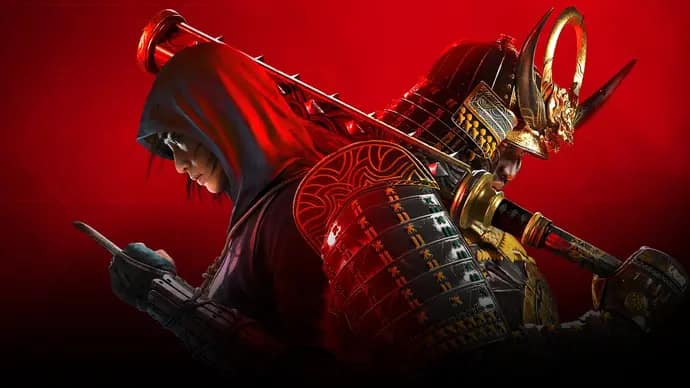The Future of AI in Gaming Starts with Microsoft Muse
Gaming is evolving. Artificial intelligence is reshaping how developers create, refine, and optimize game environments. Microsoft Muse AI is a game-changer. This cutting-edge AI model is designed to generate immersive gameplay by understanding 3D environments and physics. But what does this mean for the industry? And how will it impact developers, studios, and gamers worldwide?

What is Microsoft Muse AI?
Microsoft Muse AI is an advanced AI model that generates real-time gameplay experiences. It comprehends 3D spaces, adapts to player interactions, and enhances game mechanics. Unlike traditional AI, which follows scripted behaviors, Muse AI learns and evolves. This makes it a powerful tool for game developers looking to streamline their creative process.
How Does Microsoft Muse AI Work?
Muse AI integrates deep learning, procedural generation, and physics-based simulations to craft dynamic game worlds. Here’s how:
- 3D Environment Understanding – Muse AI recognizes spatial elements, making game worlds feel more natural.
- Physics-Based Interactions – Objects react realistically, improving immersion.
- AI-Driven Gameplay Generation – Muse AI can assist in creating levels, mechanics, and even NPC behaviors.
- Adaptive Learning – It evolves based on player interactions, making each experience unique.
How AI is Transforming Game Development
Artificial intelligence is no longer a futuristic concept. It’s here, and it’s redefining game development. Studios are leveraging AI to reduce development costs, improve efficiency, and create more engaging experiences. Let’s break down the biggest benefits of AI in gaming. Read further.
Faster Game Development Cycles
Game development is time-consuming. AI helps automate tedious tasks like:
- Procedural Asset Generation – AI tools create textures, characters, and levels.
- Automated Testing – AI detects bugs faster than human testers.
- AI-Driven Animation – Reduces the need for manual motion capture.
Enhanced Player Experiences
AI isn’t just helping developers. It’s making games more immersive and responsive. Features like:
- Smart NPC Behavior – AI-driven NPCs react naturally to players.
- Real-Time Adaptation – Games change based on player skill and choices.
- Personalized Storytelling – AI tailors narratives to individual players.
AI’s Impact on Indie Game Development
AI is significantly influencing the indie gaming landscape, providing independent developers with tools and capabilities previously exclusive to large studios. Here’s how AI is impacting indie game development:
- Procedural Content Generation: AI-powered procedural content generation can reduce game development time by up to 30%, allowing indie developers to create expansive, unique game worlds without manually designing each element. Read. zipdo.co
- Dynamic Game Balancing: AI systems can analyze player behavior in real-time, adjusting difficulty levels to maintain an engaging experience, catering to players of varying skill levels.
- AI-Enhanced Storytelling: Through natural language processing and dynamic dialogue systems, AI allows for narratives that adapt to player choices, creating personalized and immersive storylines.
- Automated Testing and Debugging: AI-driven testing tools can simulate numerous gameplay scenarios, identifying bugs and performance issues more efficiently than traditional methods, accelerating development cycles.
- Intelligent Non-Playable Characters (NPCs): AI enables NPCs to exhibit adaptive and realistic behaviors, enhancing immersion and making game worlds feel more dynamic and responsive.
Industry Perspectives on AI Integration
The integration of AI tools like Muse has sparked mixed reactions within the game development community. Some developers express concerns about job displacement and the potential devaluation of artistic efforts, fearing that AI might replace human creativity. Conversely, others view Muse as a valuable asset for early-stage development, aiding in tasks such as prototyping and ideation, thereby streamlining the creative process.
Microsoft’s Vision for Muse
Microsoft emphasizes that Muse is intended to augment, not replace, human creativity. The company envisions applications such as reviving classic games by optimizing them for modern platforms and assisting developers in the creative ideation process. Decisions regarding the integration of Muse into game development will be at the discretion of individual studios, allowing them to align AI usage with their unique creative visions.
As AI continues to transform the gaming landscape, staying informed and adaptable is crucial for developers and enthusiasts alike. Explore how AI can enhance your gaming experiences or development projects, and consider the ethical implications of its integration. Engage with communities and resources to learn more about the evolving role of AI in gaming.
AI Gaming Trends:
- AI-Generated Game Assets: Developers are leveraging AI to create in-game assets such as weapons, skins, maps, and characters. This approach significantly reduces development time and costs. For instance, Blizzard utilizes AI to generate concept art tailored to each game’s unique style, while Electronic Arts (EA) employs AI to swiftly produce digital sketches for game levels and challenges, expediting the design process from weeks to hours. Read about it. convai.com
- User-Generated Content (UGC) Enhancement: AI tools are empowering players to create personalized content, enriching the gaming experience. Platforms like Roblox have integrated generative AI tools, enabling users to customize assets through simple text prompts. This democratization of content creation fosters a more engaged community and diversifies gameplay. convai.com
- AI in Game Monetization: AI enhances monetization strategies by analyzing player behavior to offer personalized in-game purchases and advertisements. This targeted approach increases conversion rates and revenue. Additionally, AI-driven customer support, through chatbots and virtual assistants, provides efficient assistance, enhancing player satisfaction and retention. hyscaler.com
Industry Leaders:
- NVIDIA: Founded in 1993, NVIDIA has evolved into a leader in AI technology, particularly in gaming. The company’s GPUs are integral to AI development, and its H100 chip, introduced in 2022, has significantly boosted performance in AI applications. As of early 2025, NVIDIA’s market value peaked at $3.45 trillion, reflecting its dominant position in AI and gaming industries. businessinsider.com
- Microsoft: With the introduction of Muse, an AI model capable of generating gameplay by understanding 3D environments and physics, Microsoft is at the forefront of integrating AI into gaming. Muse assists in early-stage game development, aiding tasks such as prototyping and ideation, thereby streamlining the creative process. theverge.com
- Activision: The company has integrated AI tools to develop in-game assets for popular titles like “Call of Duty,” enhancing efficiency in the development process. This move has sparked discussions about the balance between AI utilization and human creativity in game design. businessinsider.com
Earnings and Market Impact:
The integration of AI in gaming has led to substantial financial growth. NVIDIA reported a record $39.3 billion in quarterly revenue as of January 2025, driven by its advancements in AI technology.
businessinsider.com Similarly, AI’s role in optimizing game development and enhancing player engagement has contributed to increased revenues for companies like Microsoft and Activision. The global market for AI in gaming is projected to experience significant growth, with revenues expected to reach approximately $7.1 billion by 2032, growing at an annual rate of 23.3%.
Developer Reactions to Microsoft’s Muse AI
The introduction of Microsoft’s Muse AI has sparked a debate within the game development community. While some developers see it as a game-changing innovation, others worry about the potential impact on creative jobs and artistic integrity.
Positive Reactions: A Powerful Game Development Tool
Many developers are excited about Muse’s potential to enhance game development. Key benefits include:
- Faster Prototyping – Muse can generate playable game sequences quickly, allowing developers to experiment with ideas without extensive manual coding.
- Creative Support – By understanding 3D environments and physics, Muse provides useful suggestions, acting as a co-pilot for developers.
- Reviving Classic Games – AI can optimize old game mechanics for modern platforms, making it easier to bring retro games back to life.
Concerns: Job Displacement and Artistic Integrity
Not all developers are on board. Some worry that AI tools like Muse might:
- Replace Human Creativity – There are fears that relying too much on AI could lead to generic and uninspired game design.
- Reduce Job Opportunities – If AI automates certain tasks, some game designers, level designers, and testers may face job insecurity.
- Ethical Concerns – Who owns AI-generated content? Some developers fear that AI-created assets might lead to legal and copyright issues.
Compare to Other AI Game Development Tools?
So, how does Microsoft’s Muse AI stack up against other AI-powered game development tools? If you’re wondering whether Muse is the best fit for your project, let’s break it down.
Muse AI vs. NVIDIA Omniverse
NVIDIA Omniverse is all about real-time collaboration and AI-assisted asset creation. It’s widely used for 3D modeling and game physics simulation. Muse, on the other hand, focuses more on gameplay generation, making it a better fit for developers looking to speed up prototyping and testing.
Muse AI vs. Unity’s AI Tools
Unity’s AI tools, like ML-Agents, are great for training AI-powered NPCs and procedural content generation. But Muse takes it a step further by understanding 3D environments and physics, allowing it to generate full gameplay sequences, not just assets.
Muse AI vs. OpenAI’s Codex
If you’ve used OpenAI’s Codex, you know it helps with AI-generated code for games. Muse isn’t designed to write code—it’s built to generate actual gameplay based on game physics and environment rules.
Available for Indie Developers?
If you’re an indie game developer, you’re probably wondering: Can I use Muse for my game? Here’s what we know so far.
Is Muse AI Exclusive to Microsoft Studios?
Right now, Muse is being developed in partnership with Ninja Theory (a Microsoft-owned studio). That means it’s currently being tested internally before it becomes widely available.
Will Muse Work With Unity or Unreal Engine?
This is the big question. While Microsoft hasn’t confirmed third-party engine support, there’s speculation that Muse could integrate with Unreal Engine and Unity—especially since both engines already support AI tools.
Will It Be Free or Paid?
Microsoft hasn’t announced pricing, but looking at how AI tools are monetized, here are three possibilities:
- Freemium model – Basic features free, with paid add-ons.
- Subscription-based – Like Adobe Creative Cloud for AI-powered tools.
- Exclusive to Xbox developers – Available only to Microsoft Game Studios.
Real-World Use Cases: Games That Could Benefit from Muse
So, how will Muse AI actually impact game development? Let’s look at some real-world examples where AI-powered gameplay generation could change the industry.
Open-World RPGs: Smarter, More Dynamic Quests
Imagine an Elder Scrolls-style RPG where Muse AI dynamically generates side quests based on your choices. Instead of scripted, repetitive missions, AI could create new storylines and characters tailored to each player’s decisions.
Survival Games: AI-Driven Enemy Behavior
In games like Rust or The Forest, enemy AI often feels predictable. But with Muse, NPCs could learn from player behavior, adapting hunting strategies, ambush tactics, or even alliance-building—making each playthrough unique.
Battle Royale & Multiplayer: AI-Assisted Map Balancing
For competitive games like Fortnite or Warzone, balance is everything. Muse AI could analyze millions of matches, adjusting loot spawn points, safe zones, or map elements to keep gameplay fair and engaging.
Retro Game Remakes: AI-Powered Remasters
Muse could also revive classic games, optimizing mechanics for modern platforms. Imagine AI upscaling 2D sprites to 3D or adapting old controls for VR—a dream come true for retro gamers.
The Future of AI in Game Development
Despite these concerns, Microsoft reassures that Muse is designed to assist, not replace, developers. Studios will have full control over its implementation, ensuring AI enhances human creativity rather than replacing it.
As AI continues to evolve, the gaming industry must find a balance between automation and artistic expression, ensuring AI-driven innovation supports, rather than undermines, game developers. Subscribe to our Newsletter!












Post Comment